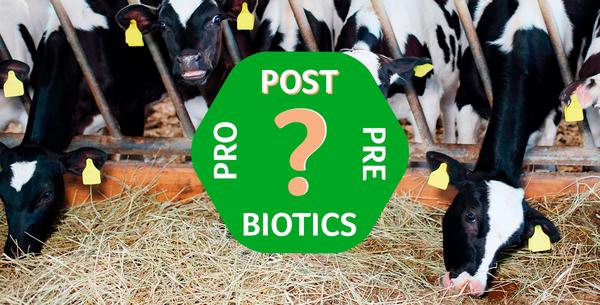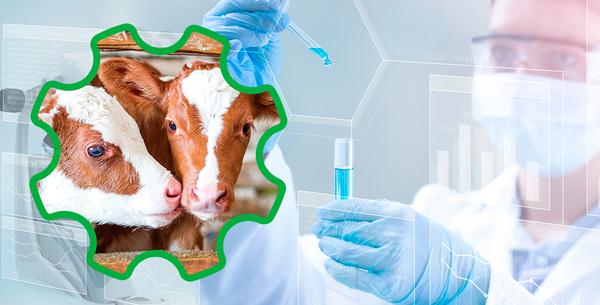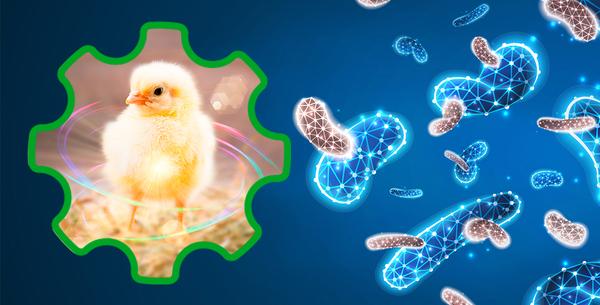Progut® – the original postbiotic modulator of intestinal homeostasis and immunity for farm animals
Published: May 4, 2021
By: Dr. Hannele Kettunen
R&D Manager
Modern animal feeding includes prophylactic approaches for supporting intestinal homeostasis and immunity, in order to avoid dysbiosis, diseases, and need for antimicrobial medication. According to the principles of the One Health concept, the well-being of humans, animals and the environment are all connected, and at these times of a pandemic, avoiding the excess usage of antibiotics in animal farming is more important than ever.
Pro-, pre- and synbiotics
Prebiotics and probiotics, or their combination – synbiotics – have been among the most frequently used strategies for enforcing the microbial balance of the gut. The downside of these three approaches is that their action on animal health and performance is dependent on interactions between live microbes. The intestinal lumen is inhabited by hundreds of microbial species, and the microbiome of especially young animals is in constant change. Thus, the potential for favorable microbial interactions between prebiotics and/or probiotics and the commensal and transient luminal inhabitants at any one time point is unpredictable.
At the virtual event Animal Microbiome Congress 2021, Dr. Michael Kogut from USDA-ARS pointed out that colonization resistance will inevitably limit the ability of probiotics to establish a permanent position in gut microbiota. He strongly stated that “If there is not a change in the homeostasis of the intestine, giving a probiotic every day and expecting it to be beneficial is just naïve.” He also noted that the targets and specificity of prebiotics are limited, referring to the inherent variation in intraluminal microbial ecosystem.

Postbiotics as an emerging category
Postbiotics is the most recent concept added to the “-biotics” family (1). Postbiotics refer to bioactive compounds produced by and from food-grade microbial organisms. They can be microbial metabolites, cell wall fragments, or other cellular constituents. Butyrate, vitamins or enzymes of microbial origin, or microbial cell surface proteins are examples of postbiotics.
A recent review article on postbiotics by Żółkiewicz et al. (2) included into the definition of postbiotics “all substances of bacterial or fungal origin that confer beneficial effect to the host and do not meet the definition of a probiotic and are not exclusively of a prebiotic nature”. This definition thus leaves the option that some parts of a postbiotic product may get fermented in the gut, and thus give some prebiotic effects.
The key aspects of postbiotics are that they do not contain any live components, and that their bioactive molecules are already in active form. Thus, the action of postbiotic on animal wellbeing and performance is independent of luminal microbial interactions and microbial composition (2). In his keynote presentation in Animal Microbiome Congress 2021, Dr. Kogut characterized postbiotics as an approach which “cuts out the middle-man”, because their beneficial effects are not reliant on intraluminal functions of live bacteria.
Progut® as an original postbiotic
Progut® is a postbiotic which was developed well prior to the era of postbiotics. The development Progut® started at the early 1990’s. Already at that time Hankkija’s R&D Director Juhani Vuorenmaa realized that animal farming should not be based on the use of prophylactic antibiotics, and that it will be necessary to support the intestinal wellbeing and functions by natural means.

The development of Progut® is based on solid science, and several top-class research groups have given their contribution to product optimization and proving its mechanism-of-action in different applications. The original product form was brought to Finnish markets on year 1999. During the last 10 years, the international markets of this feed innovation have expanded.
Progut® complies to the definition of a postbiotic because it is produced from a food-grade spent brewery yeast by an acid hydrolyzation which completely kills the yeast, degrades its cell wall into bioactive fragments of optimal size, and releases nucleotides and other constituents with beneficial effects from the cells. The water-solubility of the final product has been optimized to a level which gives the best biological responses. The research has shown over and over again that the entire product form is needed for the action, and that no single constituent of Progut® is responsible for its positive effects on farm animals.
Effects of Progut® on farm animals
Due to its high content of soluble bioactive structures, Progut® is an effective immunomodulator and balancer of gastrointestinal microbiota. The optimized, patented hydrolysis process releases an array of betaglucan- and mannose-containing molecules which bind to hemolytic E. coli and Salmonella in the intestinal lumen of farm animals. Progut®-supplementation to feeds reduces E. coli -shedding and diarrhea scores in piglets and Salmonella counts in chicken.

The bioactive molecules of Progut® also enhance immunomaturation both in monogastric and ruminant animals. Studies with chicken and pigs have demonstrated higher antibody titres and more lymphocytes in Progut®-treated animals. In calves, Progut®-supplementation increased the protection against bacterial and viral challenges, as measured by the concentration of Immunoglobulin A in serum. In layers, Progut® alleviated the consequences of chronic enteritis.
Scientific experiments have proven that Progut® has an outstanding capacity to boost ruminal fermentation of lactating, irrespective of the stage of lactation of dairy cows. The improved ruminal fermentation has been shown to translate into a higher milk production in dairy cows, sheep and goats.
Via all these postbiotic effects, Progut® has proven to bring consistent customer benefits.
References
- Wegh et al., 2019. Postbiotics and their potential applications in early life nutrition and beyond. Int. J. Mol. Sci. 20(19):4673.
- Żółkiewicz et al., 2020. Postbiotics—A Step Beyond Pre- and Probiotics. Nutrients 12(8):2189.
Related topics:
Authors:
Hankkija
Influencers who recommended :
Juhani VuorenmaaRecommend
Comment
Share

Would you like to discuss another topic? Create a new post to engage with experts in the community.








.jpg&w=3840&q=75)